The Irish Civil War has often been described as the war of the brothers. Families were sometimes split down the middle in disagreement over the terms of the Anglo-Irish Treaty of 1921. The case of one south Kerry family illustrates how divisive the Civil War could be and how brother was often pitted against brother in the battle of Free State versus Republic.
Thomas and Patrick O’Donoghue grew up on a small farm in the townland of Reenard on the south Kerry coast, one of eight children born to Michael and Ellen O’Donoghue. Part of the parish of Cahersiveen, Reenard was the boarding point for ferries to the nearby Valentia Island.
Working the land in rural south Kerry at the beginning of the twentieth century – Thomas (Tomás) was born in 1889 and Patrick (Pádraic) in 1898 – offered little to many farmer’s sons, especially in larger families, and like so many men and women, the brothers were forced to leave home and their native county for work.
Thomas and Patrick lived together in London, Patrick picking up a job in the Western Union Cable Company and Thomas taking up work with the postal service. Like many Irish men in London in the years during and after the First World War, the pair became immersed in Irish political, social and cultural organisations in the city.
Thomas O’Donoghue, the elder brother, joined the London branches of Conradh na Gaeilge, the Irish Republican Brotherhood and the Irish Volunteers. Patrick followed suit. Among the men they would have fraternised with were Cahersiveen native, Denis ‘Dinny’ Daly, later a TD for Kerry, and Michael Collins, later chairman of the Provisional Government.
As with many of their contemporaries, anticipation of rebellion drew them back to their native country. The brothers arrived in Dublin on Good Friday 1916 as plans for the Easter Rising were being finalised. Side by side, Thomas (twenty-seven) and Patrick, who was just eighteen, joined the republican garrison in the General Post Office and were under the command of fellow Kerryman, The O’Rahilly.
Following his arrest in the days after the Rising, Thomas was interned in Wandsworth, Wakefield and Frongoch. He was released from custody in July 1916 and, on refusing to enlist in the British Army, he was sentenced to fifty days hard labour and transferred to the Tower of London on 1 January 1917. Patrick, meanwhile, evaded arrest and managed to get back to London but later served time in Cork Jail and took part in a hunger strike before Christmas in 1917.

After their release from prison, Thomas and Patrick became members of the Cahersiveen Company of the Irish Volunteers under the command of Diarmuid O’Connell, a teacher from Foilmore who was friendly with Cathal Brugha and who was described by Ernest Blythe as the ‘the leader of everything in Cahersiveen.’ While at home they helped out on the family farm at Reenard.
The brothers took part in War of Independence and were active in the fight against the Crown Forces across south Kerry. During this time also, Thomas entered politics as a member of Kerry County Council and was acting chairman of the Council in 1920. A year later, he was elected to Dáil Éireann as one of seven Sinn Féin TDs representing the Kerry-Limerick West constituency. He taught Irish in Listowel at this time.
It was after the War of Independence that the O’Donoghue’s shared experience and mutual commitment to the achievement of the Irish Republic ended. Thomas opposed the Treaty and would vote against it in the Dáil. At the beginning of 1922, Patrick was aligning himself with Thomas’ political opponent and neighbour from nearby Waterville, Fionán Lynch, a TD for the pro-Treaty Cumann na nGaedheal. As Thomas was engaged in the debates on the Treaty in the Dáil, Patrick was working for Lynch who asked him to ‘go to Kerry for about a month, which I did.’
Patrick joined the National (Free State) Army in May 1922 and served throughout the Civil War at the Adjutant General’s Department in Dublin. Thomas, meanwhile fought with the anti-Treaty forces during the Civil War and was imprisoned in 1923 in Newbridge, Co. Kildare, going on hunger strike for 43 days before he was released. He was re-elected a TD for Kerry-Limerick West in 1922 and for Kerry in 1923.
Thomas retired from politics at the general election of June 1927. He was prohibited from taking up a job in teaching because of a ban on republicans from roles in the public service and he opened a small shop. After Fianna Fáil came to power in 1932 however, he secured a post in the civil service in Dublin, where he died in 1963.
Patrick retired from the Defence Forces on 16 February 1929 at the rank of captain and was based at Beggar’s Bush Barracks in Dublin. He left Ireland and moved to London. There followed lengthy correspondence with the department over various deductions and adjustment to his army pension. So dismayed and disillusioned he was by having to update his details with the department every three years, in 1948, Patrick wrote to the Taoiseach, John A. Costello, bemoaning the rigmarole of form-filling.

The pensions process for those involved in the Civil War had become ‘one of the new Irish industries,’ he claimed. He reminded Costello of his age at the time he stood with his brother in the GPO: ‘This nonsense about declarations and signatures in the presence of so and so belong[s] to another age … Having to fill up the date of birth is really not very flattering to some of the present day politicians as I was a youth of 18 years in 1916.’
Patrick, lived and worked as a shopkeeper in Athenry, Co. Galway, where he died in 1986.
Sources: Military Service Pension Collection, Military Archives; Census of Ireland (1901), private sources.
Owen O’Shea’s new book on the Civil War in Kerry is available now: ‘No middle path’: The Civil War in Kerry – Owen O’Shea (owenoshea.ie)

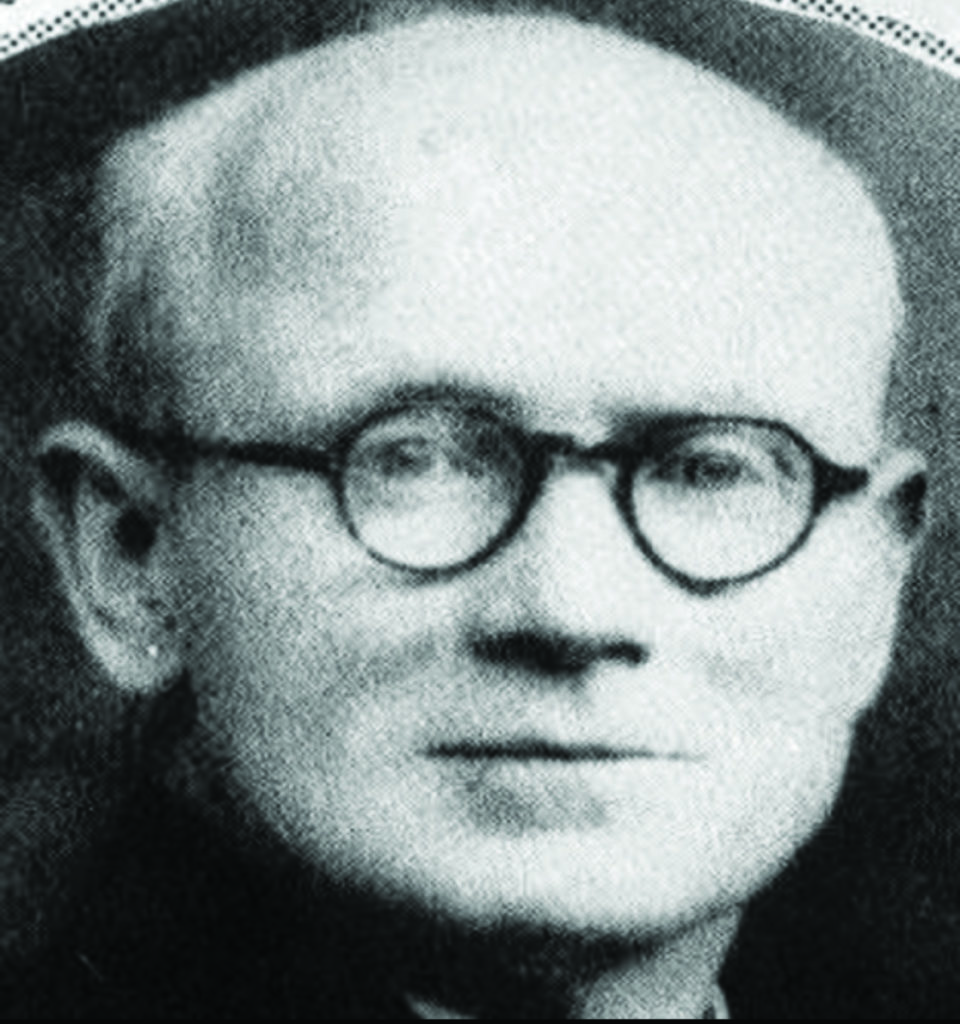
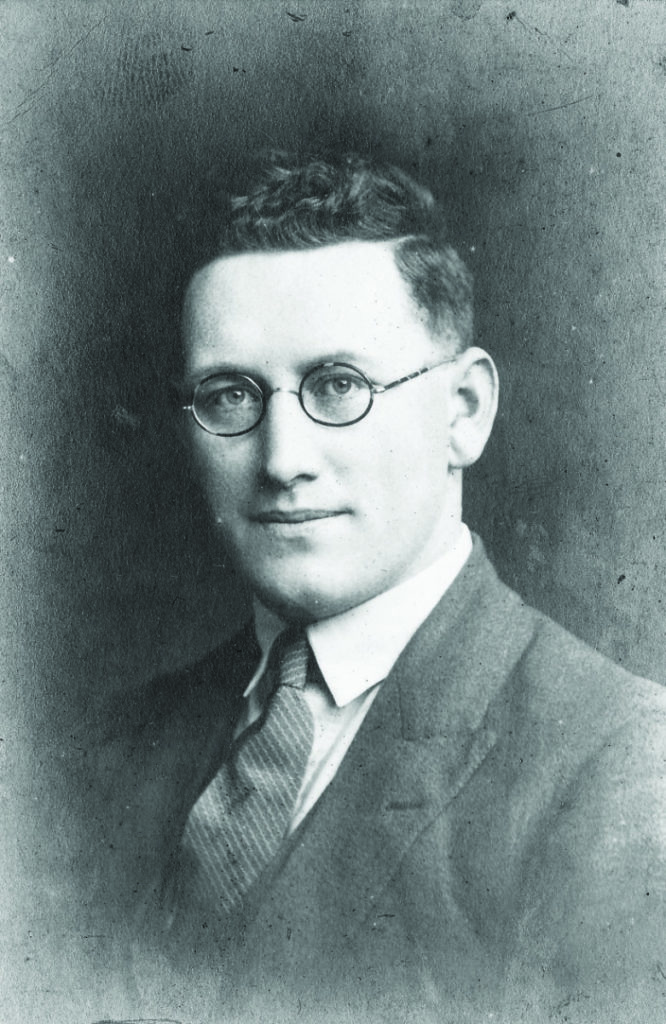
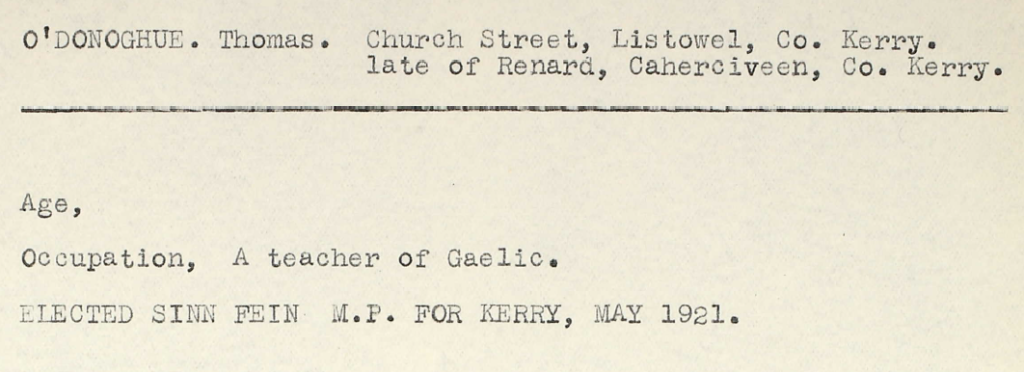
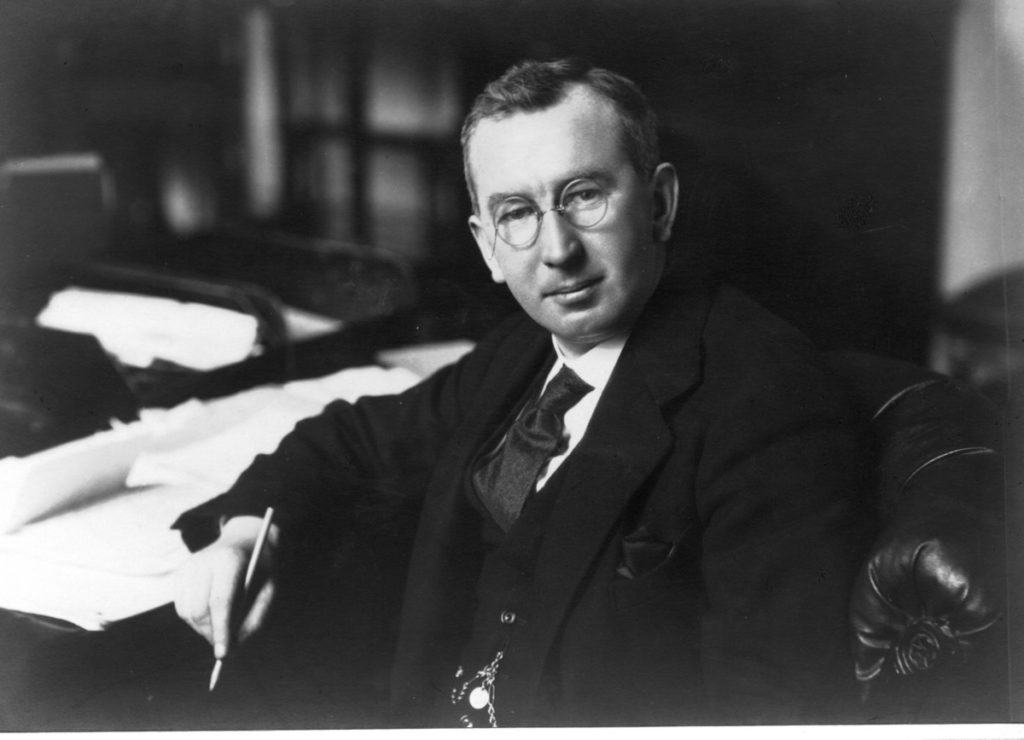
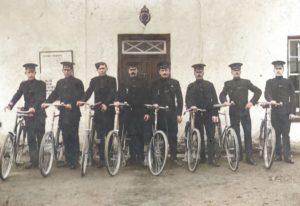
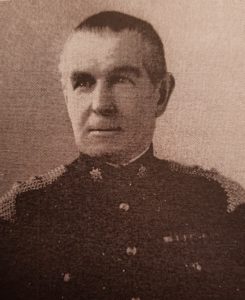

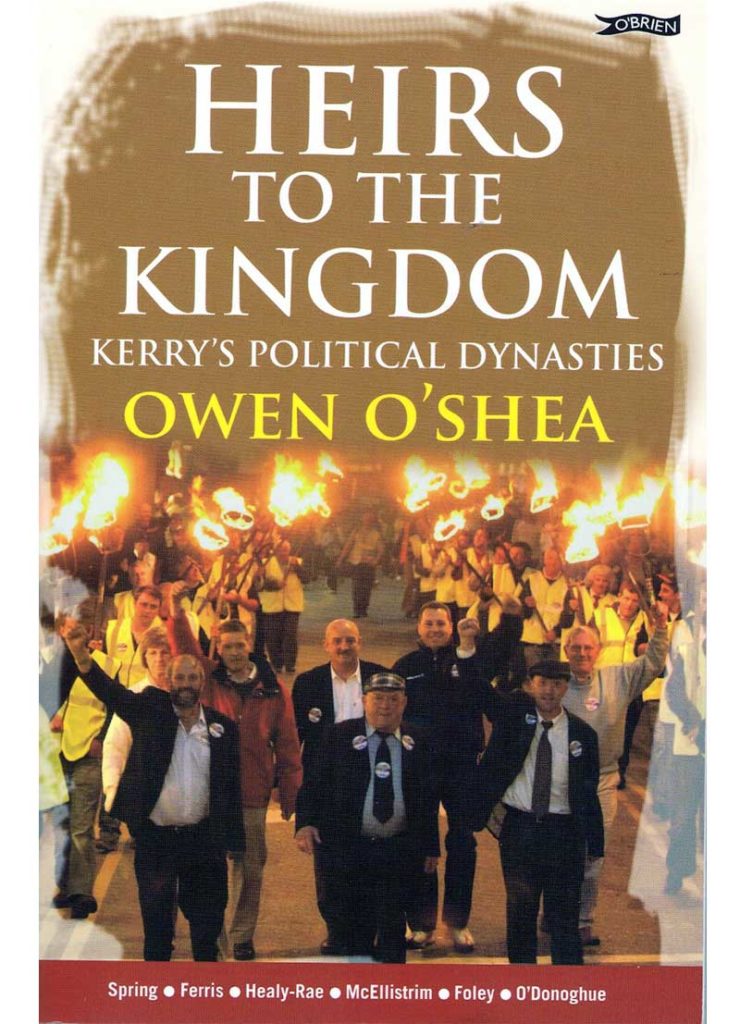
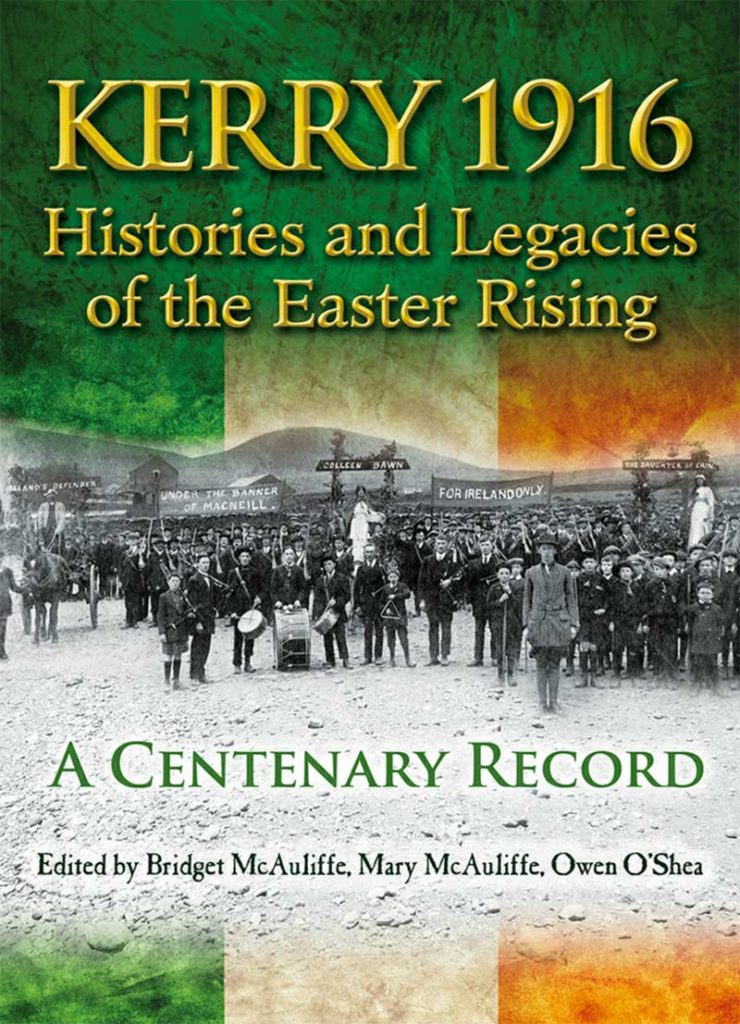
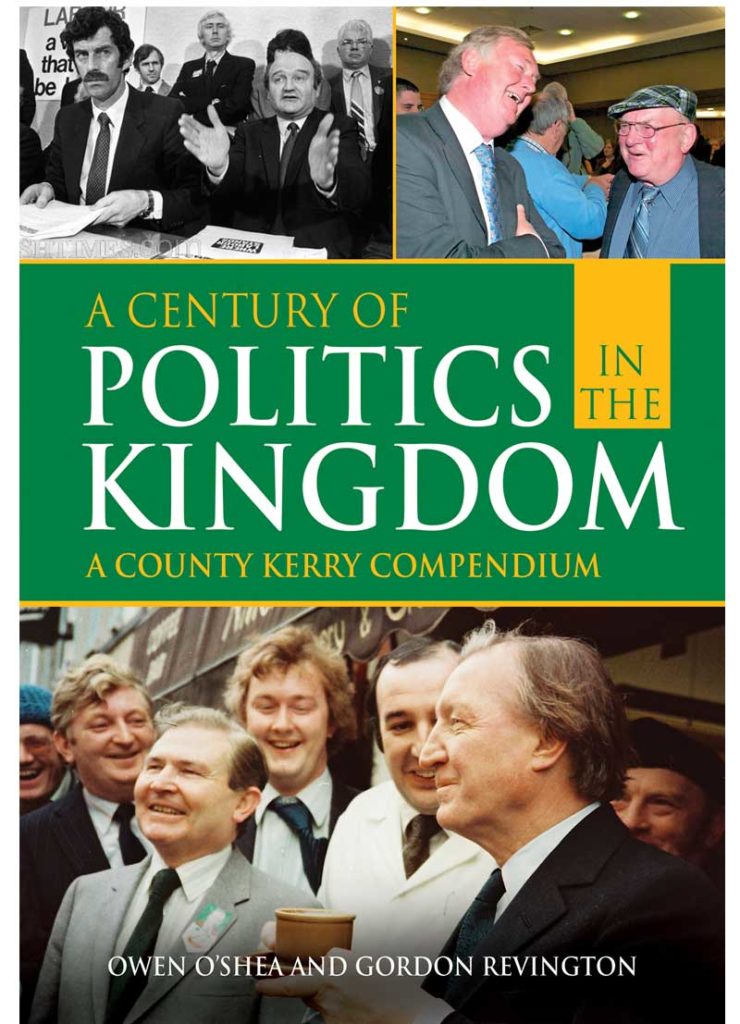
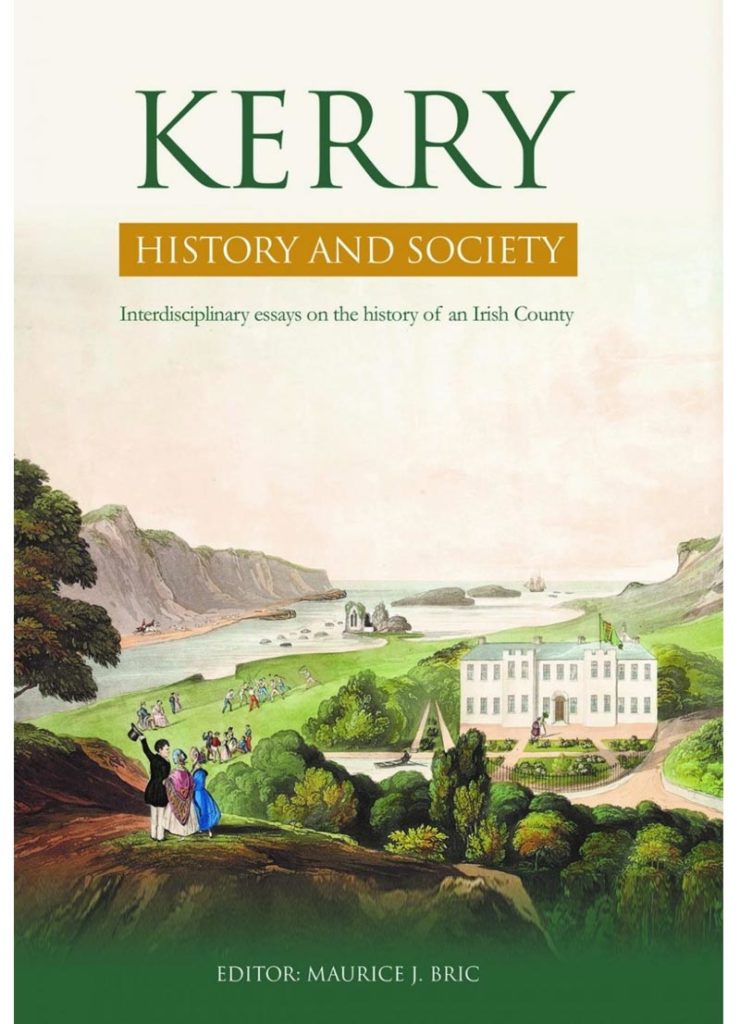
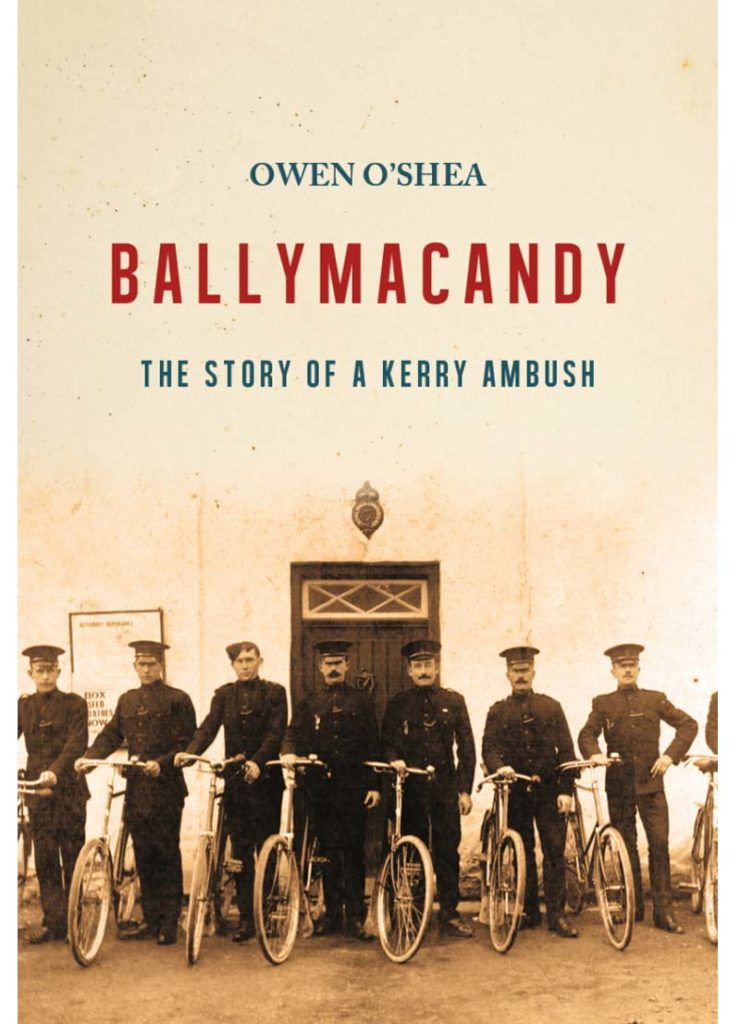
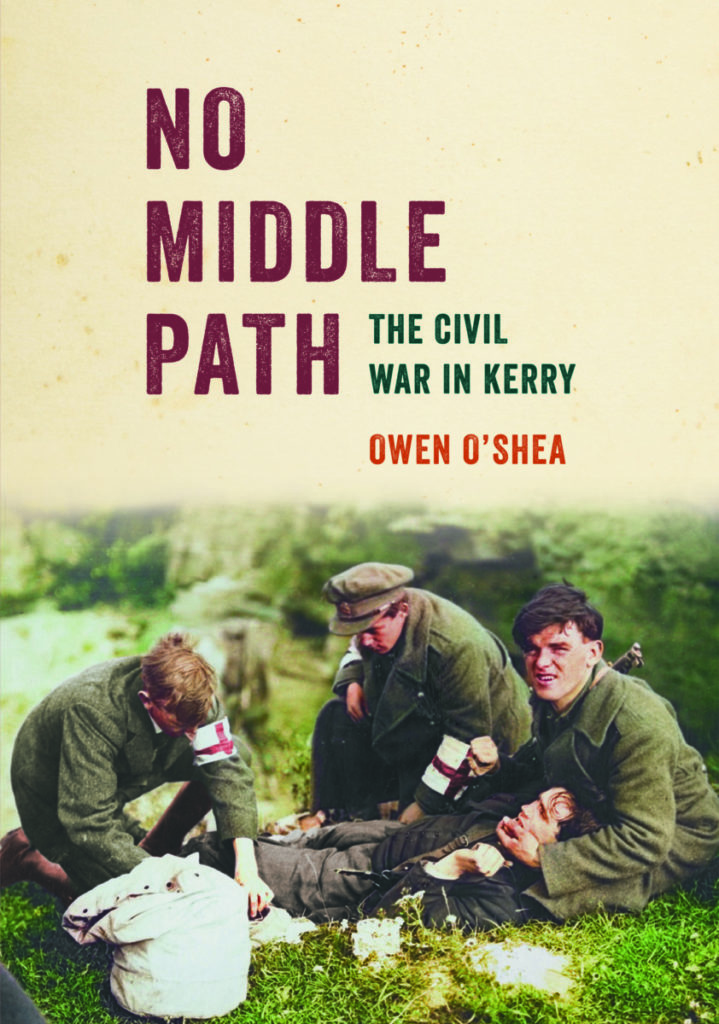
Good afternoon Owen, was it the same Patrick O’Donoghue from Cahersiveen that was interned on Spike Island during 1921? He signed two of the Spike autograph books. However his name is not on any British Army records which suggests he was using a false name??? Tom O’Neill, author, ‘Spike Islands Republican Prisoners 1921.